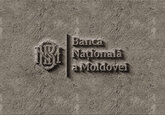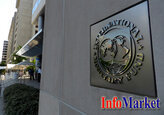
The National Bank of Moldova raised the basic refinancing rate by 1 percentage point from 2.65% to 3.65% per annum
The corresponding decision was made by the Executive Committee of the NBM at a meeting on monetary policy in the evening of July 30, taking anti-inflationary measures. According to the National Bank, in particular, it increased the base rate applied to the main operations of short-term monetary policy by 1 percentage point - from 2.65% to 3.65% per annum, and also increased by 1 percentage point interest rates on overnight loans and deposits - from 5.15% to 6.15% and from 0.15% to 1.15%, respectively. At the same time, the Central Bank did not change the rate of required reserves from funds attracted in Moldovan lei and in non-convertible currency, as well as the rate of required reserves from funds attracted in freely convertible currency, leaving them at the same level, 26% and 30% of the calculated bases, respectively. At the same meeting, the NBM Executive Committee approved Inflation Review N3, which will be published next week. As noted in the Central Bank, the updated forecast indicates the risk of inflation exceeding the upper limit of the target range in the pro-inflationary context of a pronounced external environment, which is characterized by a faster-than-expected recovery of the world economy and Moldova's main foreign trade partners, along with maintaining high quotations for oil, raw materials and food. Herewith, inflationary pressures are supported by aggregate domestic demand, which is fueled by a recovery in household consumption amid rising wages in the economy, new loans and remittances to individuals. According to operational data for April-May of this year economic activity is recovering to pre-pandemic levels. Compared to May 2019, there is an increase in industrial production (+ 4.4%), turnover at retail enterprises (+ 24.3%) and turnover of services provided to the population (+ 40.6%), as well as imports of goods and services (+ 13.3%). As the NBM emphasizes, thus, the inflationary process will be permanent and will not have a temporary character. In these circumstances, it is imperative that the authorities work together to synchronize macroeconomic policies, in particular fiscal and monetary policies. The next meeting of the NBM on monetary policy will be held on September 3, 2021. It should be noted that the last time the National Bank changed the base rate applied to the main short-term monetary policy operations was on November 6, 2020, when it was reduced by 0.1 percentage points - from 2.75% to 2.65% and then reached its record low. Meanwhile, the National Bank also lowered by 0.1 percentage points interest rates on overnight loans and deposits: on loans - from 5.25% to 5.15%, and on deposits - from 0.25% to 0.15%. In general, the NBM in 2020 gradually reduced the base rate applied to the main short-term operations of monetary policy from 5.5% to 2.65% per annum, the interest rate on overnight loans was reduced from 8.5% to 5.15%, and for overnight deposits - from 2.5% - to 0.15%. In particular, the base rate applied to the main short-term operations of monetary policy on March 4 this year was reduced by 1 pp. - from 5.5% to 4.5% per annum, on March 20 - by 1.25 p.p. - from 4.5% to 3.25% per annum, on August 6 - by 0.25 p.p. - from 3.25% to 3% per annum, on September 9 - by another 0.25 percentage points - from 3% - to 2.75% per annum, and on November 6 - by 0.1 percentage points - from 2.75% - to 2.65% per annum. // 30.07.2021 — InfoMarket







